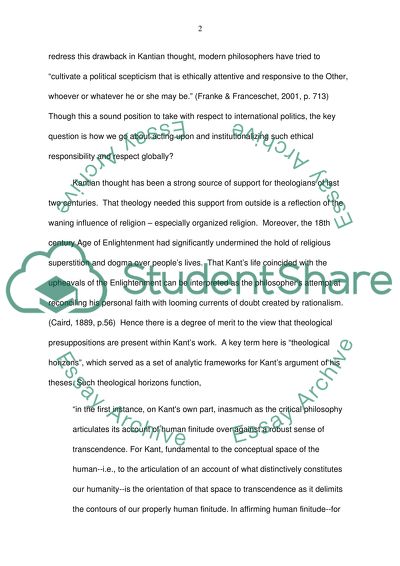Cite this document
(“Immanuel Kant and Friedrich Nietzsches Key Ideas and the Extent to Essay”, n.d.)
Retrieved from https://studentshare.org/sociology/1484611-immanuel-kant-and-friedrich-nietzsches-key-ideas-and-assess-the-extent-to-which-their-work-has-contributed-to-the-development-of-social-thought
Retrieved from https://studentshare.org/sociology/1484611-immanuel-kant-and-friedrich-nietzsches-key-ideas-and-assess-the-extent-to-which-their-work-has-contributed-to-the-development-of-social-thought
(Immanuel Kant and Friedrich Nietzsches Key Ideas and the Extent to Essay)
https://studentshare.org/sociology/1484611-immanuel-kant-and-friedrich-nietzsches-key-ideas-and-assess-the-extent-to-which-their-work-has-contributed-to-the-development-of-social-thought.
https://studentshare.org/sociology/1484611-immanuel-kant-and-friedrich-nietzsches-key-ideas-and-assess-the-extent-to-which-their-work-has-contributed-to-the-development-of-social-thought.
“Immanuel Kant and Friedrich Nietzsches Key Ideas and the Extent to Essay”, n.d. https://studentshare.org/sociology/1484611-immanuel-kant-and-friedrich-nietzsches-key-ideas-and-assess-the-extent-to-which-their-work-has-contributed-to-the-development-of-social-thought.


